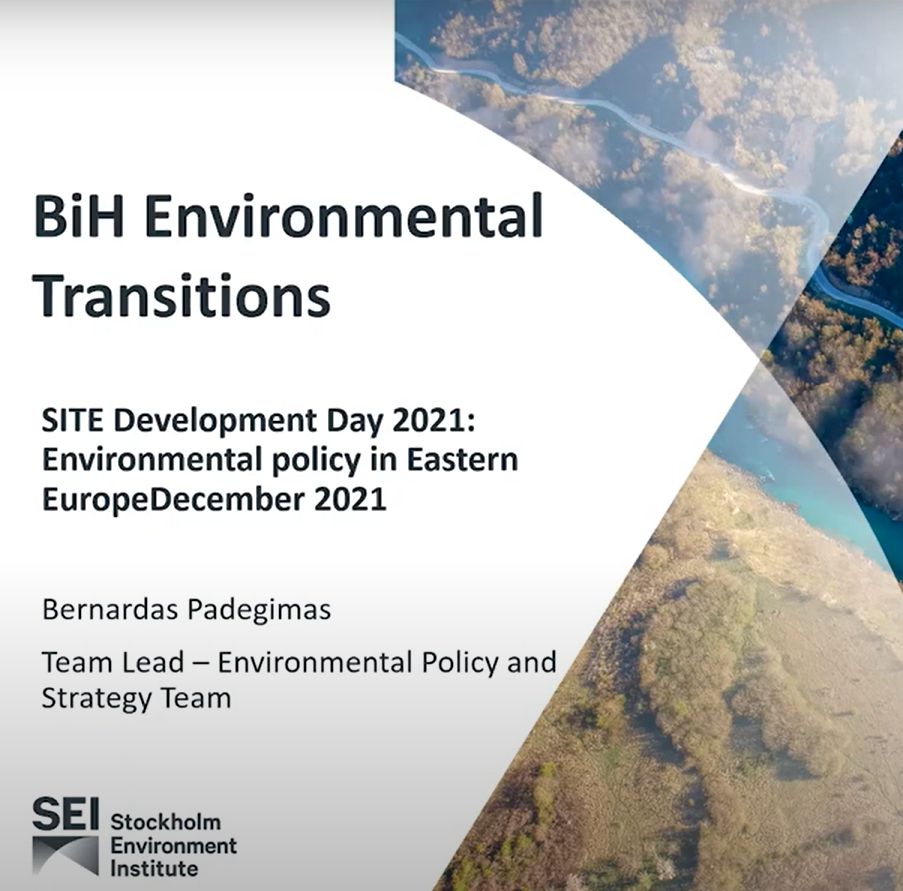Recently organized SITE Development Day Conference, held in December 2021, gathered experts from all around the world, where they presented and discussed on the important topic of climate change and challenges of a green energy transition in Eastern Europe. The need for climate action and energy transformation away from fossil fuels is much needed, yet, current country plans for emission reductions do not reach the requirements to contain global warming under 2°C.

An example of Swedish support to strengthen environmental policies in Eastern Europe was presented by Bernardas Padegimas, Team Leader at the Environmental Policy and Strategy Team (BiH ESAP 2030+) at the Stockholm Environment Institute (SEI). The BiH ESAP 2030+ project is supporting Bosnia and Herzegovina in preparing their environmental strategy. This task is made more challenging by the country’s unique political structure with two to some extent politically autonomous entities and Brčko District.
The project, therefore, aims to include a broad range of stakeholders in the process, organized into seven different working groups with 659 members on topics ranging from waste management to air quality, climate change, and energy. The project also builds capacity in targeted government authorities, raises public awareness of environmental problems, and goes beyond just environmental objectives: mainstreaming gender equality, social equity, and poverty reduction. The project is almost finished and will produce a strategy and action plan for the different levels of governance in the country’s political system. There is also a hope that this process can serve as a model for consensus-building around important but at times contentious policy issues more generally in the country.
Information used for this article can be found HERE with more details.







